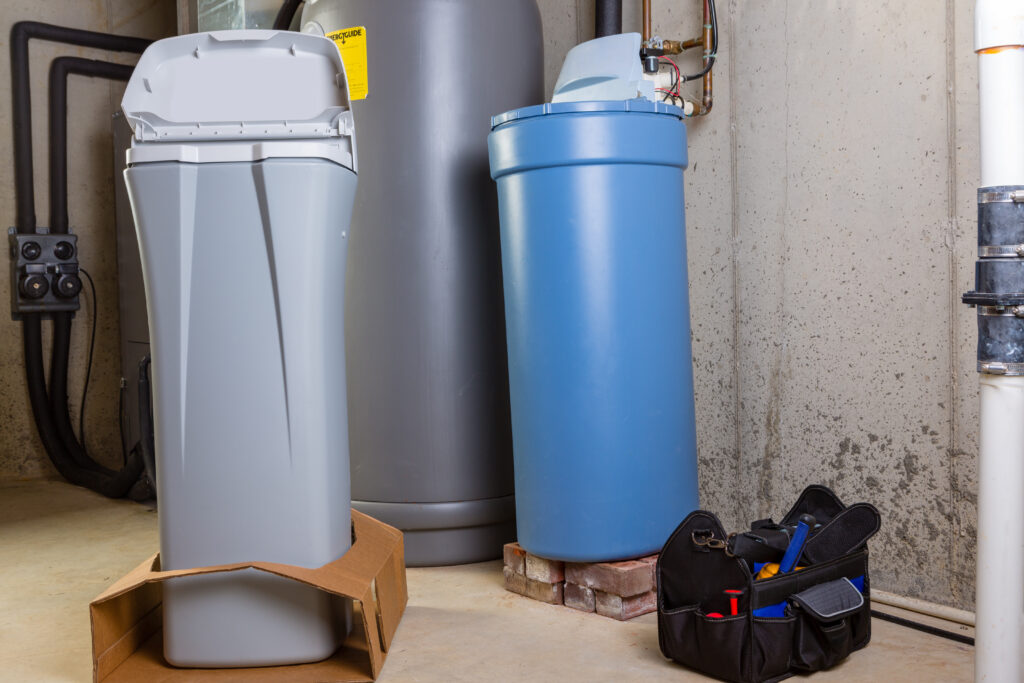
If you’re concerned about the impact of hard water on your appliances, plumbing, and overall water quality, installing a water softener system may be the solution you’re looking for. With various types of water softeners available, it’s essential to understand the different options and how they can benefit your home. In this article, we will explore the types of water softeners and everything you need to know to make an informed decision for your home.
The Importance of Water Softeners
Water softeners are designed to combat the negative effects of hard water. These systems remove or reduce the minerals responsible for water hardness, ensuring that your water is soft and free from limescale build-up. By installing a water softener, you can protect your appliances, improve the efficiency of soaps and detergents, and enjoy the benefits of soft water throughout your home.
Different types of Water Softeners
There are several types of water softeners available, each with its unique way of treating hard water. Let’s explore the most common types and their benefits:
1. Salt-Based Water Softeners
Salt-based water softeners are the most common type of water softener systems. These systems use an ion exchange process to remove calcium, magnesium, and other minerals from the water. The process involves passing the water through a resin bed that attracts and replaces the mineral ions with sodium ions.
Salt-based water softeners are available in various sizes to suit different household needs. They are effective in reducing water hardness and preventing limescale build-up. However, it’s essential to note that these systems add a small amount of sodium to the water. If you’re on a low-sodium diet or have specific health concerns, you may want to consider alternative options.
2. Dual-Tank Water Softeners
Dual-tank water softeners are a variation of salt-based water softeners. These systems feature two resin tanks, allowing for continuous soft water supply. While one tank is in use, the other undergoes the regeneration process. This ensures that you always have access to soft water, even during the regeneration cycle.
Dual-tank water softeners are ideal for households with high water usage or those that require a constant supply of soft water. However, they tend to be more expensive and require more space for installation compared to single-tank systems.
3. Salt-Free Water Softeners
Salt-free water softeners, also known as water conditioners, offer an alternative to traditional salt-based systems. Instead of removing minerals from the water, these systems use a process called template-assisted crystallization (TAC) to prevent mineral build-up.
TAC systems work by transforming the hardness minerals into microscopic crystals that do not adhere to surfaces. This prevents limescale formation and protects your plumbing and appliances. Salt-free water softeners are an excellent option for those concerned about sodium intake or looking for a more environmentally friendly option.
4. Magnetic Water Softeners
Magnetic water softeners are a non-traditional approach to water softening. These systems use magnets or magnetic fields to alter the structure of the minerals in the water, preventing them from causing limescale build-up. However, it’s important to note that the effectiveness of magnetic water softeners is still a topic of debate in the industry, and their results may vary.
Choosing the Right Water Softener for Your Home
When selecting a water softener for your home, several factors need to be considered. Here are some key points to keep in mind:
Water Hardness Level
To determine the appropriate water softener, you need to know the hardness level of your water. This can be determined by using a water testing kit or consulting with a water treatment professional. The hardness level will help you determine the size and capacity of the water softener required for your household.
Water Usage
Consider the average daily water usage in your home. This includes factors such as the number of occupants and the amount of water used for household activities. Knowing your water usage will help determine the capacity and regeneration frequency needed for the water softener system.
Available Space
Evaluate the available space for installing a water softener system. Some systems, like dual-tank water softeners, require more space than others. Ensure that the chosen system fits comfortably within the designated area.
Budget and Maintenance
Consider your budget for purchasing and maintaining a water softener system. Salt-based systems may require regular replenishment of salt, while other systems may have different maintenance requirements. Factor in the cost of ongoing maintenance when making your decision.
Water Softener Installation and Replacement Services
Installing or replacing a water softener system requires professional expertise to ensure proper functioning and optimal performance. It’s crucial to engage the services of qualified technicians who specialize in water treatment systems. They will assess your specific needs, recommend suitable options, and install the system correctly.
At Shift Air, we provide comprehensive water softener installation and replacement services in Calgary, AB. Our team of experienced technicians will guide you through the process, from selecting the right water softener for your home to ensuring a seamless installation. We prioritize customer satisfaction and strive to deliver top-notch service that exceeds your expectations.
Conclusion
Investing in a water softener system can significantly improve the quality of your water and protect your plumbing and appliances from the damaging effects of hard water. By understanding the different types of water softeners and their benefits, you can make an informed decision that suits your specific needs.
